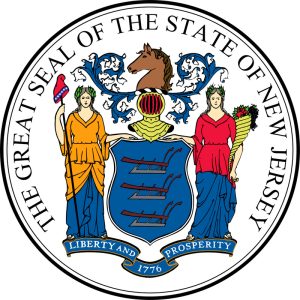On July 3, 2023, New Jersey Governor Phil Murphy signed A.B. 5323 into law to amend New Jersey’s Corporation Business Tax (CBT).  The bill enacted a variety of clarifications, corrections and modifications to the CBT.
The bill enacted a variety of clarifications, corrections and modifications to the CBT.
Articles Posted in Nexus
Pennsylvania Legislation Provides Updates to Corporate Income Tax Law
The Pennsylvania Governor signed H.B. 1342 to enact changes to the state’s corporate income tax.[1]  The legislation modifies the corporate income tax in three ways: (1) adopts a bright-line economic nexus standard; (2) adopts market sourcing for receipts from intangibles; and (3) reduces the corporate tax rate and gradually continues to reduce the rate over the next eight years. Continue Reading ›
The legislation modifies the corporate income tax in three ways: (1) adopts a bright-line economic nexus standard; (2) adopts market sourcing for receipts from intangibles; and (3) reduces the corporate tax rate and gradually continues to reduce the rate over the next eight years. Continue Reading ›
TEI’s Carolinas Chapter Meeting
Pillsbury SALT attorneys Zachary Atkins and Evan Hamme will present during TEI’s Carolinas Chapter Meeting on November 12.
U.S. Solicitor General Recommends the Supreme Court Decline New Hampshire v. Massachusetts
On May 25, the U.S. Solicitor General filed its highly anticipated brief in New Hampshire v. Massachusetts  and recommended that the Court decline jurisdiction over the case. Although the ultimate decision is yet to be issued, the U.S. Supreme Court generally follows the Solicitor General’s recommendations after, as here, the Court requests the U.S. government’s input.
and recommended that the Court decline jurisdiction over the case. Although the ultimate decision is yet to be issued, the U.S. Supreme Court generally follows the Solicitor General’s recommendations after, as here, the Court requests the U.S. government’s input.
Oregon Tax Court Applies Wayfair Retroactively in Telecommunications Tax Case
 The Regular Division of the Oregon Tax Court just handed down a nexus decision with respect to the collection of an emergency telecommunications tax (E911 Tax). In Ooma, Inc. v. Department of Revenue, TC 5331 Tax Court, 03/02/2020, the Court concluded that notwithstanding the absence of physical presence in Oregon, a company which provided VOIP services to Oregon customers, was required to collect the E911 Tax. Continue Reading ›
The Regular Division of the Oregon Tax Court just handed down a nexus decision with respect to the collection of an emergency telecommunications tax (E911 Tax). In Ooma, Inc. v. Department of Revenue, TC 5331 Tax Court, 03/02/2020, the Court concluded that notwithstanding the absence of physical presence in Oregon, a company which provided VOIP services to Oregon customers, was required to collect the E911 Tax. Continue Reading ›
NYS Tax Department: Changes to Sales Tax Collection Requirement for Marketplace Providers
New York State increased the sales tax economic factor presence nexus threshold from $300,000 to $500,000. The change is retroactive to June 1, 2019. Accordingly, marketplace providers with no physical presence in the state are required to register and collect New York sales tax if the provider’s gross receipts from sales of tangible personal property in New York is equal to or exceeds $500,000 and facilitated more than 100 sales of tangible personal property delivered in the state. The sales are computed over the past four sales tax quarters. It’s not clear what prompted the state to increase the gross receipts threshold of the economic nexus standard—there are no other changes to the definition of marketplace provider, marketplace sellers or to any of the liability relief provisions. (For more information, access the recently issued marketplace provider guidance here, and the prior guidance here.)
California OTA Rejects FTB’s 0.2 Percent Bright-Line Nexus Standard for Out-Of-State Minority Interest LLC Members
 The California Office of Tax Appeals (OTA)—in a 3-0 pending precedential opinion granting the Appeal of Jali, LLC—has rejected the Franchise Tax Board’s (FTB) 0.2 percent ownership threshold as the new bright-line standard for determining whether an out-of-state LLC member is actively “doing business” (and thereby required to file and pay tax) in California. The FTB relied upon Swart Enterprises, Inc. v. Franchise Tax Bd. (2017) 7 Cal.App.5th 497 (Swart) to deem Jali as actively doing business in California because its membership interest in an in-state LLC ranged between 1.12 to 4.75 percent, which “was well beyond the 0.2% Swart limit.” However, the OTA determined the FTB misconstrued Swart and found Swart was “squarely grounded on the relationship between the out-of-state member and the in-state LLC” and not simply based on ownership percentage. The OTA then evaluated Jali’s facts and found no evidence it had “any ability or authority, directly or indirectly, to influence or participate in the management or operation” of the LLC that conducted business in California.
The California Office of Tax Appeals (OTA)—in a 3-0 pending precedential opinion granting the Appeal of Jali, LLC—has rejected the Franchise Tax Board’s (FTB) 0.2 percent ownership threshold as the new bright-line standard for determining whether an out-of-state LLC member is actively “doing business” (and thereby required to file and pay tax) in California. The FTB relied upon Swart Enterprises, Inc. v. Franchise Tax Bd. (2017) 7 Cal.App.5th 497 (Swart) to deem Jali as actively doing business in California because its membership interest in an in-state LLC ranged between 1.12 to 4.75 percent, which “was well beyond the 0.2% Swart limit.” However, the OTA determined the FTB misconstrued Swart and found Swart was “squarely grounded on the relationship between the out-of-state member and the in-state LLC” and not simply based on ownership percentage. The OTA then evaluated Jali’s facts and found no evidence it had “any ability or authority, directly or indirectly, to influence or participate in the management or operation” of the LLC that conducted business in California.
NYS “Service” vs. “Other Business Receipts” Sourcing Decision
The New York State Tax Appeals Tribunal (TAT) issued a decision that addresses sourcing “services” vs. the catch-all “other business receipts” for years prior to New York Tax Reform (tax years beginning prior to 1/1/2015). The TAT found that the taxpayer, who provided electronic litigation support to its clients, was not providing a “service” to its clients. Instead, the TAT found the taxpayer’s receipts were properly classified by the Department of Taxation and Finance as “other business receipts.” However, the TAT found for the taxpayer in determining where other business receipts must be sourced. The TAT found that the receipts should be sourced to where they are earned (as provided in the Department’s regulations) and found that the receipts were earned where the taxpayer performed the work resulting in the income, which was at the taxpayer’s Colorado location and not at the electronic devices of the taxpayer’s customers. Matter of Catalyst Repository Systems, Inc., DTA No. 826545 (Tax App. Trib. July 24, 2019).
The Evolution of Software as a Service Taxes Post-Wayfair
(This article originally was published by Law360 on May 17, 2019.)
In the last year, several state legislatures have enacted laws and several state courts have published decisions on whether software as a service, or SaaS, is subject to sales and use tax. These developments impact many SaaS providers, especially due to the expanded nexus provisions that many states are enacting after the United States Supreme Court’s South Dakota v. Wayfair Inc. decision.1 The states have gone in different directions—Indiana enacted legislation exempting SaaS, while Iowa and Rhode Island began taxing SaaS. The Massachusetts Appellate Tax Board and the Pennsylvania Board of Finance and Revenue have both issued decisions clarifying the taxability of SaaS offerings.
 SeeSALT Blog
SeeSALT Blog

